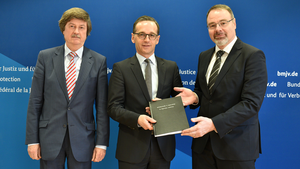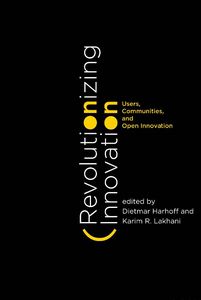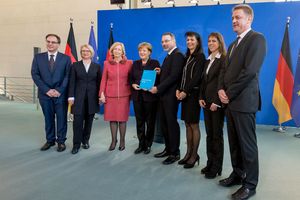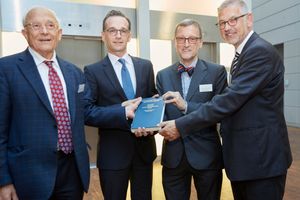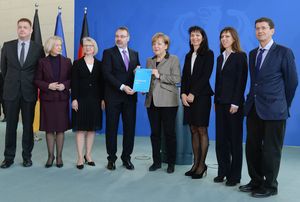The Ministry had commissioned the Max Plank Institute for Innovation and Competition to prepare the study in order to provide a better empirical basis for legal-political discussions of copyright law in the digital age.
Digitalization is a key driver for innovations and the emergence of new business models. Internet-based value-creation processes are increasingly changing the basic conditions for creativity while at the same time opening up new ways to disseminate and use many different types of content. Accordingly, copyright as a legal instrument to promote innovation and creativity is also confronted with new challenges. Its role in this context must be determined not only from a legal, but also from an economic perspective. Basic groundwork for this task includes charting and analyzing those technological and economic changes that digitalization and interconnectedness entail. Trends regarding technological developments and value-creation models are particularly visible in the kinds of young enterprises that are currently introducing innovative, internet-based business models. If there is a connection between their business models and copyright law, this connection can make it possible to draw conclusions as to which basic legal conditions might influence innovation in digital markets in a positive or a negative way.
For the study, 40 startups with internet-based business models were surveyed, whereby “startup” was defined as an enterprise under ten years old implementing an innovative business model or innovative technology and striving for significant growth. The goal of the interviews with the startups was to determine which parameters of copyright law the entrepreneurs saw as containing a potential for conflict with their own business model. Thus the first step was to determine what role copyright-protected content played in the creation of value and who the authors of this content were. Next, it was ascertained what copyright-related questions, insecurities or risks arose for the startups with regard to this content. Finally, the entrepreneurs were asked how they responded to these challenges in their day-to-day business.
The study was commissioned by the German Federal Ministry of Justice and Consumer Protection and carried out jointly by the Max Planck Institute for Innovation and Competition and the Center for Digital Technology and Management (CDTM). A multidisciplinary analysis taking technical, economic and legal aspects into account, the study reveals many of the challenges faced by German copyright law with respect to innovation in digital markets. The work thus provides an empirical basis for drafting proposals for a reform of German copyright law.


